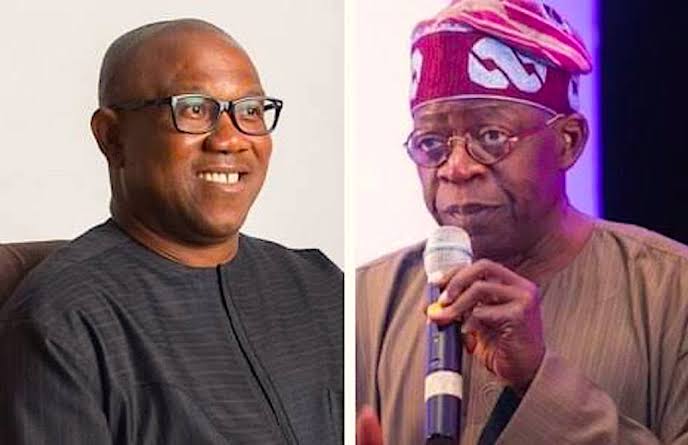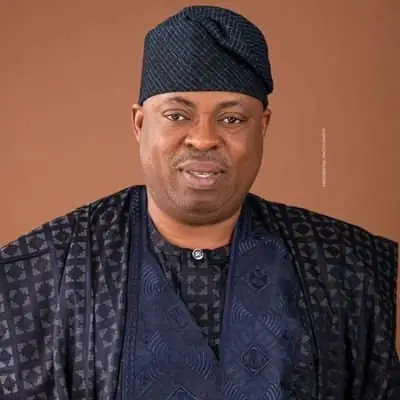June 12: Atiku Calls for National Movement to Reclaim Nigeria for Nigerians
Abuja, Nigeria – June 12, 2025 – In a powerful Democracy Day address, former Vice President Atiku Abubakar invoked the spirit of Nigeria’s historic June 12, 1993, election to rally citizens for a national movement aimed at “reclaiming Nigeria for Nigerians.” Speaking in Abuja, the Peoples Democratic Party (PDP) stalwart warned that the country is sliding into authoritarianism under President Bola Tinubu’s administration, urging Nigerians to unite in defense of democracy.
Atiku’s message, delivered on the 32nd anniversary of the annulled election widely believed to have been won by Chief MKO Abiola, struck a chord with many, as he highlighted the sacrifices of pro-democracy activists. “The gains of June 12 were hard-won,” Atiku said, paying tribute to Abiola, his wife Kudirat, Tafida Shehu Musa Yar’Adua, and Alfred Rewane, who lost their lives in the struggle. “Their memories must never be forgotten.”
A Warning Against Authoritarianism
The former vice president expressed alarm over what he described as Nigeria’s descent into a “creeping one-party dictatorship” under the ruling All Progressives Congress (APC). He accused the Tinubu administration of governing with an intent to “dominate, subdue, and silence,” claiming that the democratic promise of 1999 is being dismantled. “What Nigerians are witnessing is not governance but a conquest,” Atiku declared.
Citing economic hardship, insecurity, and the erosion of civil liberties, Atiku argued that the legacy of June 12 demands urgent action. He referenced a 2023 Amnesty International report claiming over 10,000 deaths due to insecurity since Tinubu took office, alongside widespread displacement in states like Benue and Plateau. “Nigerians are suffering, and the government appears indifferent,” he said, echoing sentiments from recent protests organized by the Take It Back Movement.
Call for a United Opposition
Atiku reiterated his push for a broad opposition coalition, describing it as a “moral imperative” to safeguard Nigeria’s democracy, economy, and dignity. “This is not about power for its own sake,” he emphasized. “It is about ensuring no one privatizes the state and reduces the people to pawns in a political chess game.”
The call for unity follows Atiku’s earlier warnings, including his 2024 Independence Day message, where he accused the APC of manipulating processes to weaken opposition parties. Political analysts see his latest address as a strategic move to galvanize support ahead of the 2027 elections, leveraging the symbolic weight of June 12.
Reflecting on June 12’s Legacy
Atiku, an active participant in the events leading to the Third Republic, reflected on his own sacrifices, including stepping down his presidential ambition in 1993 to support Abiola. He described the period as a “moment of great promise and great sacrifice,” lamenting that the Nigerian people continue to bear the burden of unfulfilled democratic aspirations.
The June 12 election, annulled by the military regime of General Ibrahim Babangida, remains a defining moment in Nigeria’s history, symbolizing the fight for free and fair elections. Atiku’s address coincided with nationwide Democracy Day events, including wreath-laying ceremonies at Abiola’s residence in Lagos, attended by prominent figures across party lines.
Public and Political Reactions
Atiku’s speech sparked varied reactions. Supporters on social media platforms praised his call for unity, with hashtags like #ReclaimNigeria trending briefly on X. However, critics, including some APC members, dismissed his remarks as electioneering rhetoric. “Atiku is recycling old promises to stay relevant,” said an APC chieftain, who declined to be named.
Meanwhile, civil society groups like the Take It Back Movement echoed Atiku’s concerns, pointing to their planned June 12 protests against economic hardship and shrinking civic space. “The right to protest is enshrined in the Constitution,” said Juwon Sanyaolu, the movement’s national coordinator, urging security agencies to protect demonstrators.
A Moral Crusade or Political Strategy?
Atiku framed his movement as a “moral crusade” rather than a mere political contest, urging Nigerians to rise against oppression. “As long as oppression thrives, June 12 lives on—not just as memory, but as a movement,” he concluded.
Political observers note that Atiku’s repeated calls for restructuring and opposition unity, as seen in his March 2025 coalition meeting in Yola, position him as a key figure in the anti-APC camp. However, challenges remain, including internal PDP divisions and public skepticism about recycled political elites.
Looking Ahead
As Nigeria grapples with economic challenges, including high inflation and unemployment, Atiku’s message resonates with those frustrated by the status quo. Whether his call for a national movement translates into tangible political momentum remains to be seen. For now, the legacy of June 12 continues to inspire debates about Nigeria’s democratic future.




